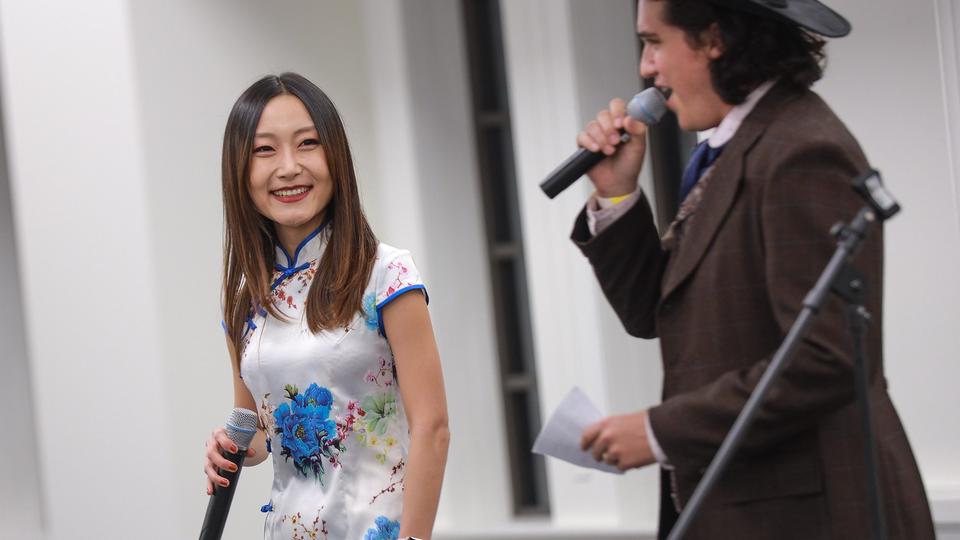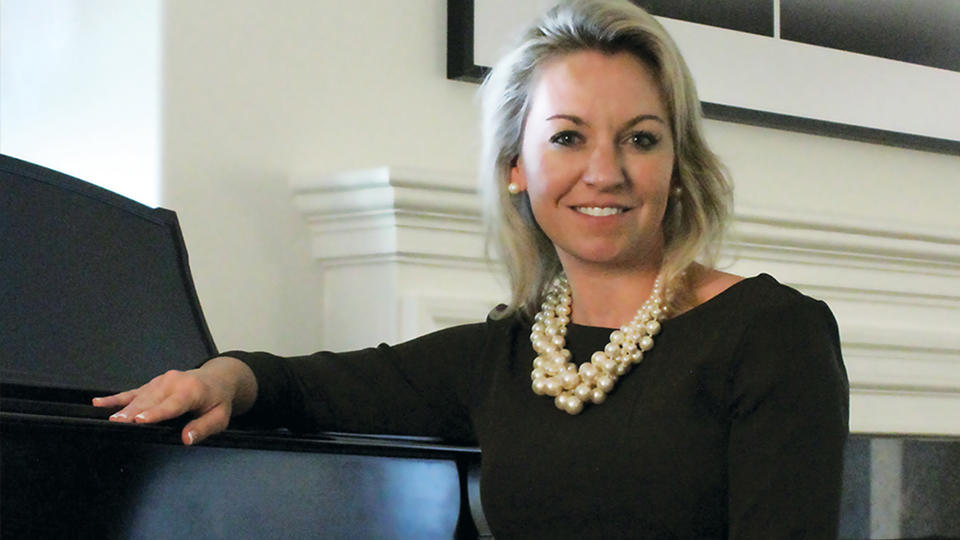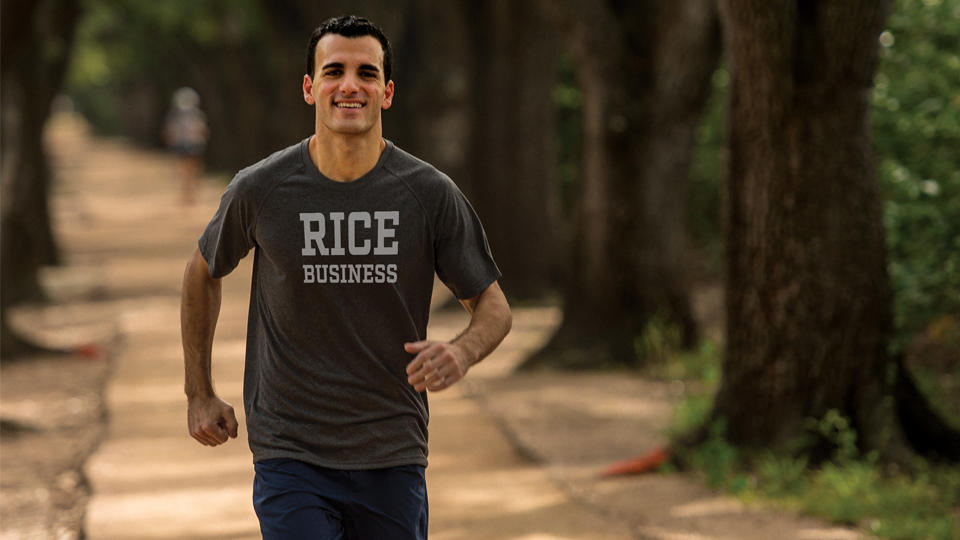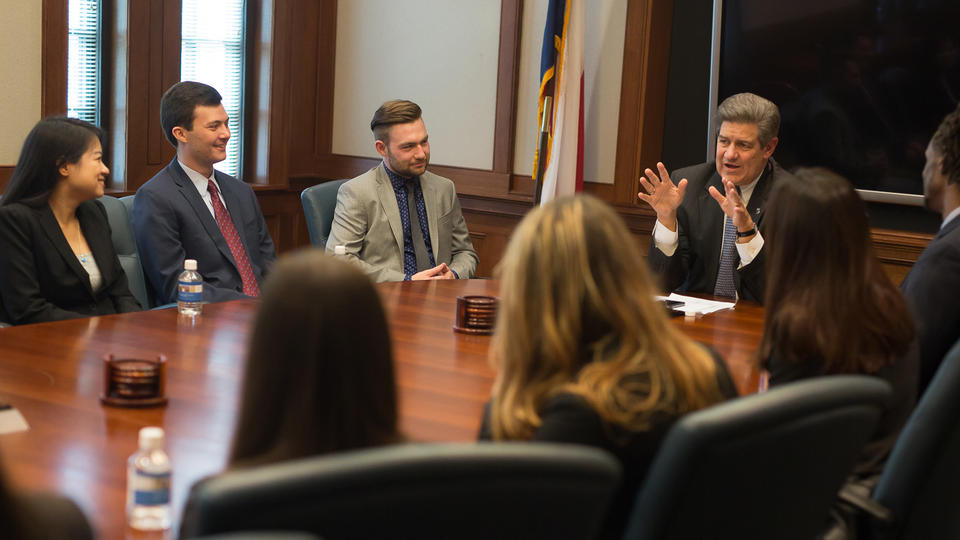
A Catalyst for Growth
Vishruti Jakhar, Full-Time MBA ‘19

About Vishruti Jakhar, Full-Time MBA ‘19
“I think people have four things that motivate them — money, security, relationships and personal growth. My work with Transocean and Pacific Drilling fulfilled all four, but after seven years, I needed another catalyst for my growth. That’s when I decided to earn my MBA.”

A self-described ultra-deep water drilling expert, Vishruti Jakhar ‘19 grew up in Jaipur, Rajasthan, India interested in engineering and science. Her parents were supportive and a family friend introduced her to the field in which she eventually earned a degree: applied petroleum engineering. She secured her dream job with Transocean following school. Despite her short stature, Vishruti never doubted herself on a drilling rig, but it took two years to change her boss’ mind and gain the crew’s respect.
“When I first started on the rig, no one could believe I was there. They thought it was a joke. They were afraid I would hurt myself.” Far from it. The work was so challenging physically that she decided to take up mountaineering when she had time off the ship. “I signed up for a hike in the Himalayas and thoroughly enjoyed the experience. I was surprisingly good. I transitioned from one-day hikes to month-long climbing expeditions. It helped me in so many ways. I realized what kind of endurance I had, mentally and physically. There were things I was discovering in the mountains about myself that would help me in my work."
Keep Exploring
Matt Manriquez
Matt Manriquez, Full-Time MBA '20
Matt Manriquez, a Full-Time MBA student, shows you a day in his life from an early-morning work out at the rec center to lunch with classmates, and a wind-down at a campus favorite, Willy's Pub!
Keep Exploring
Baldwin Luu
Blakely Maynard
Master of Accounting '20
The end of the semester can be hectic, but Rice Business MAcc students know how to handle the stress with social nights, study-breaks and support from their peers. Follow MAcc student Blakely Maynard through a day in the life at Rice Business to see why you belong here.
Keep Exploring
What's It Like to Work in Tax?
Do you wonder what it’s like to work in tax? Read our interview with recent Rice MAcc alumna Kelly Wang (Class of ‘18).
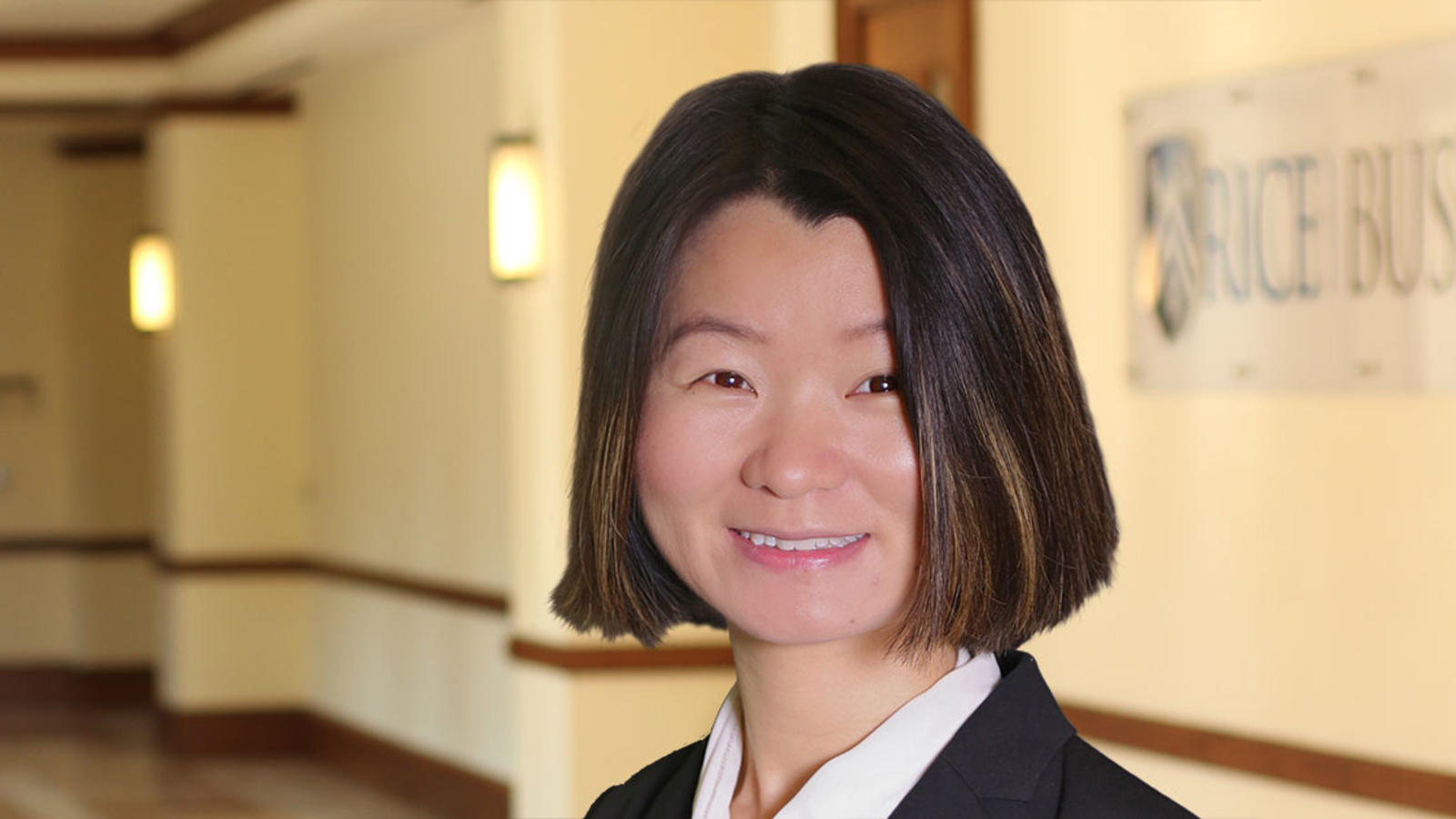
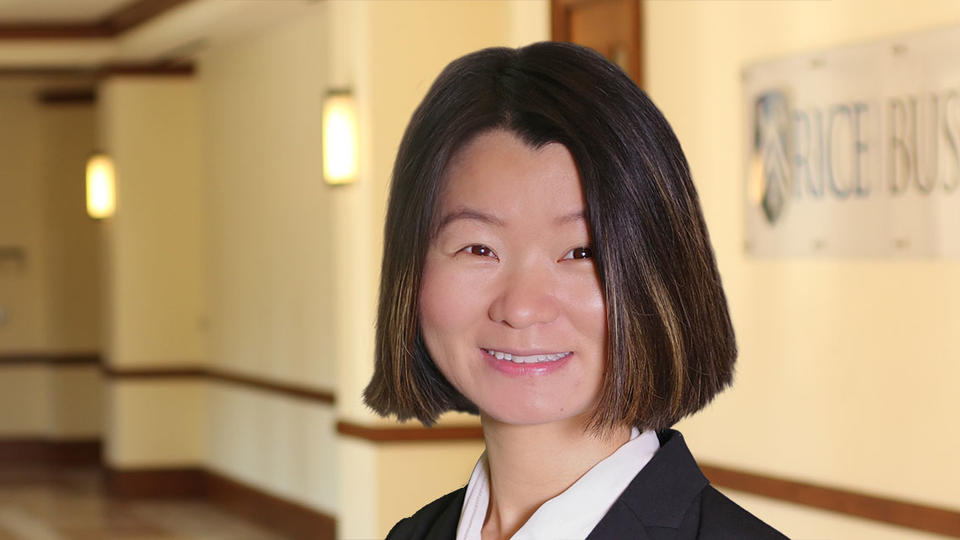
Read our interview with recent MAcc alumna Kelly Wang.
Do you wonder what it’s like to work in tax? Read our interview with recent Rice MAcc alumna Kelly Wang (Class of ‘18).
Tell us a little bit about your background and why you decided to pursue the MAcc.
Before I came to Rice university, I had a M.A. in Literature and worked as a project assistant and project coordinator. I really enjoyed working with different people and finding solutions, but the most important thing I learned from my work experience is that the business world has many opportunities. Accounting is the language of business. I wanted to master that language to understand businesses and help them succeed. As soon as I heard about the Rice MAcc program, I signed up because I knew it was one of the best.
Where do you work and how long have you been there?
I work for Andersen, a global tax firm. I’ve been there since September 2018.
What drew you to tax?
Originally, I just wanted to find a job that was secure. I knew that, when the economy is good, you need a good tax accountant and, when the economy is bad, you need a better tax accountant! So, tax accountants are always in demand. As a tax professional, I understood I could build up my expertise with years of experience and create a career with unlimited longevity. That’s why I decided to become a tax accountant. However, after I actually started working, I found I really enjoyed my work. It’s a very challenging and interesting job. I need to know financial accounting, tax accounting and many legal aspects to be able to provide the best services to my clients. Besides that, I’ve been constantly challenged by each client’s unique situation.
What personality characteristics make for an effective tax professional?
Attention to detail is very important. Being able to understand legal documents and effectively synthesize information is crucial. Being adaptive and having a strong desire to learn will help your career progress. These characteristics are helpful to any professional but they are particularly important for an effective tax professional.
Interested in Rice Business?
What do you like most about what you do?
Every client’s situation is different. That makes my job challenging and interesting. The desire to find the best solution for my client challenges me to acquire further knowledge and conduct research. Through different clients and cases, I can learn more and build up my understanding and knowledge of the tax world.
What does a typical workday for you entail?
Serving clients is what I do all day. Some projects take weeks or even months to finish, but others may only take me one or two days. Before the project starts, there are many project management pieces. I’ll work with Managers to come up with staffing and budget estimates, and acquire a timeline and data requests from the client. For each project, I need to go through the client’s financial data, identify tax sensitive accounts and apply tax laws to produce the most accurate tax returns as efficiently as possible. Prior year’s paperwork can provide a good start, but each year clients may have new situations or a change of tax laws that requires research on many topics.
However, my work does have season focuses due to various deadlines. In the first quarter, I get some returns out of the door, but most of my work will be on tax liability estimation and filing extension. In the second quarter, I focus on big entity returns. September and October will be busy because of final deadlines. During the last two months of the year, we prepare Texas franchise returns, fiscal year end returns, and participate in a lot of trainings.
What are some noteworthy experiences you’ve been able to have working at your firm?
I have participated in some partnership restructurings, which made me proud because the input from a tax accountant is valuable and can make a big difference in the deal and partners’ decisions. I’ve also seen some clients who did not get the tax experts’ opinion on the structure of the entity and ended with big financial losses and IRS penalties. I tell everyone, if you are starting a new entity or doing a restructuring, get your tax CPA involved early to avoid unnecessarily getting tripped up later!
Does a career in tax sound like something you’d like to pursue? Reach out to us!
You May Also Like
Keep Exploring
Rodrigo Duluc
Rodrigo Duluc, Master of Accounting, '20
A Day In The Life Of A Rice Business Student Athlete: Rodrigo Duluc
Follow Rice Business MAcc student and Rice baseball player Rodrigo Duluc as he shows you how to balance classes and practice.
Keep Exploring
Rice Jones Is Latest B-School To Join Ranks Of STEM MBAs
The Jones Graduate School of Business has designated all its master's programs as STEM, including its MBA and Master of Accounting.

A Day in the Life of a Rice MBA: Kavita Sinha
Kavita Sinha, Professional MBA '20
A Day In The Life of A Rice MBA: Kavita Sinha
Kavita Sinha, Professional MBA ‘20, takes you to in-class projects, club meetings and team building at Top Golf.
You May Also Like
Keep Exploring
A Day in the Life of a Rice MAcc Student: Emily Romero
Best MBA Traditions At Top Business Schools
"My favorite event at Rice Business is the Annual Rice Around the World Partio. It is a huge event where the entire Rice Business community comes together to celebrate the different parts of the world we all come from and represent. Whether it is India, Mexico, China, or Texas, Rice realizes that everyone has unique differences and cultures that make you who you are and that it is worth celebrating. It is a full night of local and international foods, music, and dancing." - Doug Fiefa
